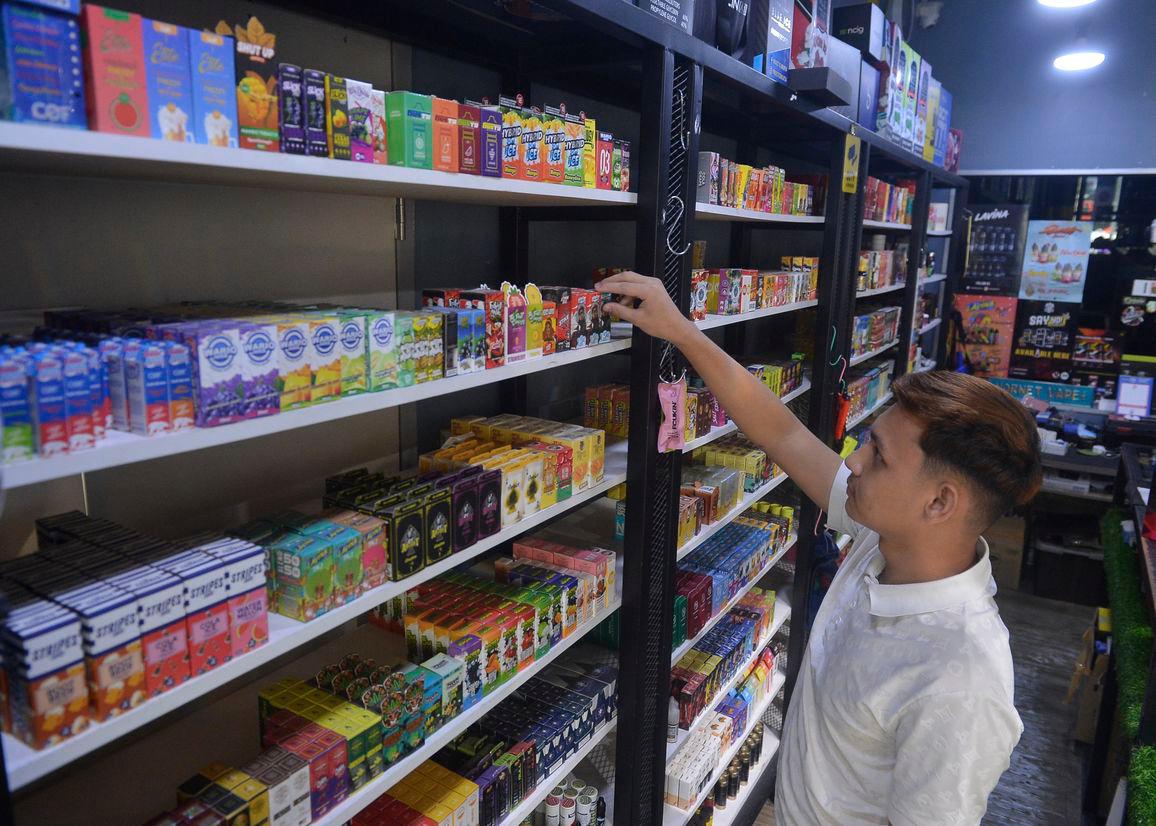PETALING JAYA: Mixed messages from Putrajaya on the future of vaping have left both industry players and consumers bewildered, with the Malaysian Vape Chamber of Commerce (MVCC) warning of legal and economic uncertainties.
Its secretary-general Ridhwan Rosli said the Finance Ministry is considering a “pro-health” excise hike on vape liquids – currently taxed at 40sen per millilitre – while the Health Ministry appears to be pushing for a nationwide phase-out.
“The Finance Ministry was talking about raising taxes and suddenly the Health Ministry is talking about banning vape through Cabinet. That would go against Act 852.”
Act 852 of the Control of Smoking Products for Public Health Act 2024 sets out strict rules on advertising, packaging, point-of-sale displays and the sale of tobacco and vape products to minors.
Ridhwan stressed that under this framework, the Cabinet cannot simply impose a nationwide ban without first amending the legislation.
“At present, state governments can only limit retail licences, not contradict federal law. Some states that tried tougher restrictions have already faced legal challenges.
“Wherever cigarettes can be sold – at petrol stations or 24-hour minimarts – vape can technically be sold too.”
The chamber, he added, is “just as confused” as consumers, accusing ministries of trying to appease “different groups” instead of presenting a clear policy.
The Health Ministry has said Malaysia is “moving towards” a total ban on vape sales and use but has yet to give a timeline or details.
Universiti Putra Malaysia’s Putra Business School associate professor Dr Ida Md Yasin said the government must coordinate its ministries before making announcements.
“Sometimes a minister gives an opinion on the spot and it gets publicised before any real discussion. That’s when confusion happens.”
From a fiscal perspective, Ida argued that higher excise duties alone would not curb use.
“Vapes and cigarettes are highly addictive. No matter how much tax we impose, people will still buy them. Sharp price hikes could even drive smuggling, just like illicit drugs,” she warned.
She described the proposed “pro-health tax” as part of a broader effort to govern addictive products, including sugary foods and online gaming.
“Governments have a responsibility to protect society from addiction, whether it’s nicotine, sugar or digital habits.”
Ida also cautioned that banning vape while leaving cigarettes untouched would only benefit tobacco companies.
While revenue from vape and tobacco duties is modest compared with the national budget, she noted the long-term health burden is substantial.
“The government must lead but individuals must also care for their own health,” she said.
Citing Malaysia’s now widely observed smoke-free restaurant rules, she said: “You can see the health difference. Malaysia has made progress, but we must do more.”
Whether through taxes, regulation or prohibition, Ida said policies must be consistent and comprehensive.
“Don’t just ban vape. Cigarettes are no better. If we want a healthier future, we need clear, united action from all ministries and from society itself.”
On the ground, vape retailers are already feeling the pinch.
In Penang, several shop workers said orders for new stock had been halted since the government’s proposal was floated.
At Bandar Perda, Bukit Mertajam, an employee known only as Amirul said: “If the sale of vapes is prohibited, the shop will close and six of us will lose our income.”
Another worker, Haris Mohd Izham, 26, said his boss had stopped purchasing devices and flavour stock altogether.
“We’re just waiting for instructions on whether to run clearance promotions to sell what’s left.”









